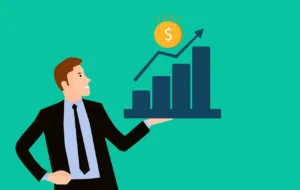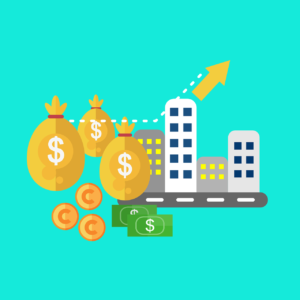In today’s competitive business landscape, a well-designed sales funnel can be the game-changer you need to elevate your brand, improve customer relationships, and maximize profits. Do sales funnels work in driving conversions guides potential customers through a structured journey—from awareness to purchase—while building trust and addressing their needs at every stage. Whether you’re a small business owner or a seasoned entrepreneur, implementing an effective sales funnel can significantly enhance your business outcomes.

Do Sales Funnels Work in Driving Conversions?
A sales funnel represents the structured journey that potential customers take, from the initial awareness stage to becoming loyal buyers. Businesses use sales funnels to attract and engage prospects, nurture relationships, and convert them into paying customers. In today’s competitive digital landscape, sales funnels play a crucial role in optimizing marketing efforts and enhancing conversion rates.
Understanding the Sales Funnel
A well-structured sales funnel consists of multiple stages that guide potential customers through the buying process. The key stages include:
- Awareness – Prospective customers discover your brand through online ads, social media, content marketing, or word of mouth.
- Interest – They explore your offerings, sign up for newsletters, or download lead magnets.
- Consideration – Prospects evaluate your products or services, compare options, and engage with your content.
- Decision – They make a purchase decision and convert into customers.
- Retention & Loyalty – Businesses nurture customers post-purchase to encourage repeat sales and long-term relationships.
Benefits of a Sales Funnel
Building Trust
Trust is essential for conversions, especially in the digital era. A sales funnel allows businesses to build credibility through various strategies, such as:
- Providing valuable educational content and free resources.
- Using automated email sequences to maintain engagement.
- Demonstrating expertise and reliability over time.
For example, a business selling online courses can offer a free eBook or a webinar as a lead magnet. Once prospects download the resource, an automated email sequence educates them about the benefits of enrolling in premium courses.
Maximizing Lifetime Value
A well-optimized sales funnel doesn’t just focus on a single transaction; it maximizes the lifetime value of customers by encouraging repeat purchases. This can be achieved through:
- Upselling – Offering premium versions of products.
- Cross-selling – Recommending complementary products.
- Loyalty Programs – Providing exclusive deals to returning customers.
For instance, an e-commerce brand selling skincare products can suggest related items like serums and moisturizers when a customer purchases a cleanser.
Addressing Sophisticated Buyers
Modern consumers are well-informed and conduct extensive research before making purchasing decisions. Sales funnels cater to these buyers by:
- Providing tailored content that aligns with their interests.
- Offering product comparisons, testimonials, and case studies.
- Ensuring seamless interactions through personalized experiences.
A SaaS (Software as a Service) company, for example, may provide free trials, detailed tutorials, and customer success stories to guide potential buyers through their decision-making process.
Accommodating the Purchase Cycle
Not all buyers make instant decisions; some take weeks or months to convert. A sales funnel ensures that businesses stay top-of-mind by:
- Capturing leads through sign-ups and contact forms.
- Sending value-driven emails over time.
- Retargeting prospects with relevant ads.
For example, a real estate agency can use a sales funnel to nurture leads who are looking for homes. They can send regular updates on market trends, financing options, and new listings to keep potential buyers engaged.
Key Components of an Effective Sales Funnel
Lead Magnets & Content Offers
Offering free value-driven resources like eBooks, webinars, and case studies helps attract leads and build an email list.
Landing Pages & Opt-in Forms
Optimized landing pages with compelling CTAs (Call-to-Actions) encourage visitors to share their contact details and enter the funnel.
Automated Email Sequences
Automated email campaigns keep prospects engaged by providing valuable content, addressing pain points, and offering solutions.

Retargeting & Remarketing
Using paid ads to retarget website visitors who didn’t convert can bring them back into the funnel and encourage purchases.
Social Proof & Testimonials
Including reviews, case studies, and testimonials helps build credibility and increase trust among potential buyers.
Essential Elements of a Successful Sales Funnel
1. Lead Magnet
A lead magnet is a valuable free resource offered to prospects in exchange for their contact information, typically an email address. This step is crucial sales funnels work in driving conversions by capturing high-quality leads genuinely interested in your offerings. Examples of effective lead magnets include:
- Checklists – Quick, actionable guides for solving specific problems.
- eBooks – In-depth content on industry-specific topics.
- Conversion Charts – Helpful tools for decision-making.
- Free Trials or Consultations – Hands-on experience with your product or service.
A strong lead magnet should be relevant to your target audience and provide immediate value, encouraging them to take the next step in the funnel.
2. Opt-In Pages
An opt-in page serves as the entry point of the sales funnel, persuading visitors to subscribe for updates, offers, or exclusive content. To maximize conversions, an opt-in page should:
- Use a clear, compelling headline that emphasizes benefits.
- Highlight the value of signing up (e.g., “Get a free 10-step marketing guide!”).
- Keep the form simple and direct to minimize friction.
A well-optimized opt-in page ensures that businesses capture leads efficiently, increasing their chances of driving conversions down the funnel.
3. Early-Stage Offer
Once a lead has entered the funnel, an early-stage offer encourages further engagement. These are low-commitment incentives designed to build trust and establish credibility. Examples include:
- Free mini eBooks – Short guides packed with value.
- Short challenges – Engagement-driven activities (e.g., “5-day weight loss challenge”).
- Discounted products – Limited-time special offers for first-time buyers.
Early-stage offers serve as stepping stones, helping move leads closer to the primary sales objective while reinforcing trust.
4. Tripwire
A tripwire is a low-cost product or service that converts leads into paying customers. By offering a high-value product at a minimal price (typically under $20), businesses achieve:
- Trust building – Buyers experience the value of the brand without making a significant commitment.
- Customer conversion – Once a customer makes a small purchase, they are more likely to buy again.
For example, a digital marketing agency might offer a $10 mini-course on social media advertising as a tripwire before upselling their full-fledged marketing package.
5. Downsell and Upsell Strategies
To maximize revenue, sales funnels incorporate downsell and upsell techniques:
- Downsell – Offering a lower-cost alternative to buyers hesitant about a high-ticket item.
- Upsell – Encouraging customers to purchase premium versions, bundles, or additional services.
Example:
- A software company selling a $500 course may offer a downsell of a $99 beginner’s guide for those unwilling to commit.
- After a successful purchase, they might provide an upsell for a $1,000 mentorship program.
Strategically using these techniques ensures that businesses drive conversions while catering to different customer segments.
6. Core Product or Service
At the heart of the sales funnel is the core product or service. To ensure high conversion rates, businesses must:
- Deliver high-quality offerings that meet or exceed expectations.
- Clearly showcase value through compelling sales copy, visuals, and testimonials.
- Provide social proof via customer reviews, case studies, and endorsements.
A well-positioned core product ensures that customers see its value, leading to higher conversion rates and repeat business.
7. Automated Email Sequences
Email marketing plays a crucial role in nurturing leads throughout the sales funnel. Automated email sequences help businesses:
- Maintain consistent communication with potential buyers.
- Educate leads about product benefits and solutions.
- Gradually guide prospects toward making a purchase.
Example:
- A customer downloads a free eBook.
- They receive a welcome email introducing the brand.
- Follow-up emails provide educational content and exclusive offers.
- The final email presents a limited-time deal to encourage conversion.
By automating the email follow-up process, businesses drive conversions without manually reaching out to each lead.
8. Thank You Page Optimization
A thank-you page is often overlooked, yet it plays a vital role in enhancing customer experience and driving additional conversions. Instead of a generic confirmation message, use the thank-you page to:
- Express gratitude and reinforce the brand’s value.
- Offer exclusive deals on related products or services.
- Encourage social sharing or referrals to expand reach.
For instance, after purchasing a $50 online course, customers might receive a thank-you page discount for an advanced-level course at a reduced rate.
Sales Funnels Work in Driving Conversions
Absolutely! Businesses across various industries have successfully implemented sales funnels to increase conversions, improve customer retention, and maximize revenue. Here’s why they work:
- They guide prospects through the buying journey – From awareness to purchase, a sales funnel ensures a structured, logical progression.
- They build trust and engagement – Through email sequences, educational content, and offers, businesses create meaningful relationships with leads.
- They maximize revenue opportunities – Upsells, downsells, and tripwires increase average order value.
- They automate and optimize marketing efforts – Once set up, a sales funnel works continuously, nurturing leads and converting them into customers.
Real-World Example:
Imagine an online fitness coach selling a weight loss program. Their sales funnel might look like this:
- Lead Magnet: A free “7-Day Healthy Meal Plan” (email sign-up required).
- Opt-in Page: Simple form with a compelling call to action.
- Early-Stage Offer: A $9.99 “Home Workout Guide.”
- Tripwire: A $19 “30-Day Workout Challenge.”
- Core Product: A $199 “90-Day Transformation Program.”
- Upsell: A $499 VIP coaching program with personal support.
- Automated Emails: Series of emails providing tips, motivation, and special discounts.
- Thank-You Page: A “thank you” message with a limited-time offer for additional coaching.
By structuring their sales funnel effectively, the fitness coach drives conversions while maximizing revenue at different price points.
Conclusion
So, do sales funnels work in driving conversions? Without a doubt! Whether you’re a small business, entrepreneur, or established brand, implementing a well-structured sales funnel can significantly enhance your ability to attract, nurture, and convert leads into loyal customers. By leveraging lead magnets, email automation, upsell strategies, and optimized thank-you pages, businesses can streamline the buying process and boost profitability.
If you’re not using a sales funnel yet, now is the time to start! Build one today and watch your conversions soar!
Do Sales Funnels Work in Driving Conversions? Absolutely! A well-structured sales funnel is a powerful tool for attracting leads, building trust, and converting prospects into loyal customers. By leveraging strategic content marketing, automation, and personalized engagement, businesses can optimize their sales process and drive sustainable growth. Implementing a well-designed sales funnel ensures that potential customers have a seamless and compelling journey from awareness to conversion, leading to increased sales and long-term customer retention.

FAQs: Sales Funnels Work in Driving Conversions
What is a sales funnel?
A sales funnel is a step-by-step process that guides potential customers from awareness to purchase, optimizing their journey at every stage.
Why is a sales funnel important?
A sales funnel builds trust, nurtures leads, maximizes customer lifetime value, and provides a structured approach to converting prospects into loyal customers.
How do I create a sales funnel?
Start by identifying your target audience, creating a lead magnet, setting up opt-in pages, and automating email sequences. Then, include stages like early-stage offers, tripwires, and upsells to guide prospects toward conversion.
Can small businesses benefit from sales funnels?
Absolutely! Sales funnels are scalable and can be tailored to fit businesses of all sizes, helping them attract leads, retain customers, and grow revenue.
How long does it take to see results from a sales funnel?
The timeline varies depending on your industry, target audience, and product. With a well-executed strategy, you can start seeing results within weeks or months.
Embrace the power of sales funnels to transform your business. By implementing these strategies, you can build trust, increase conversions, and establish a loyal customer base—ultimately driving long-term success and profitability.


